Advertisement
Red Voters In A Blue State
Along The Political Red Line In Central Mass., Voters 'Wanted Change'
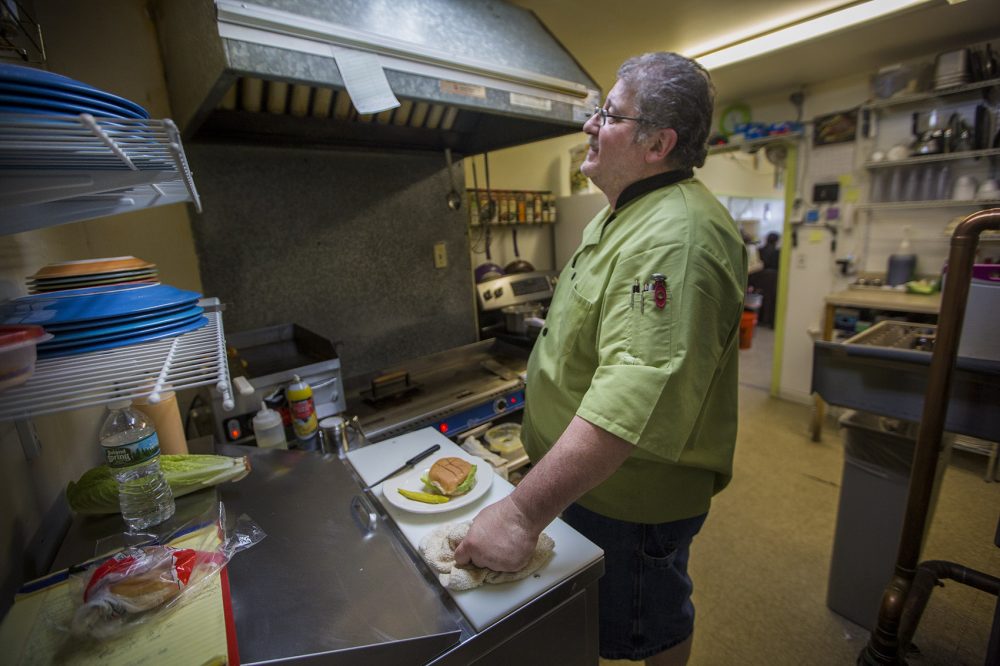
Although we think of Massachusetts as a solidly "blue" state, more than a million of the state's residents voted for President Trump in November.
Trump's support came mostly from Plymouth County south of Boston, and from central Massachusetts. There, in the central part of the state, you can drive from the New Hampshire border south to the Connecticut line, and pass through a line of towns that all voted for Trump.
These are mostly rural communities, where gun rights are important. They are small towns where residents express a sense of disconnection from the booming economy, wealth and politics of Greater Boston.

In many ways, these central Massachusetts towns are part of the "Rust Belt," similar to the parts of the country that made the decisive difference in the election: western Pennsylvania, Wisconsin and Michigan, where manufacturing jobs have disappeared, and where lots of working class people feel disconnected from the economic and political mainstream. They are part of a deepening political division in this state — much like we are seeing across the whole country.
'Toy Town' Looks For A Way Forward
There are signs of economic life along Central Street in Winchendon, a town of about 10,000 people along the New Hampshire border. A number of new stores have opened recently, and the town is working hard to promote the region’s natural beauty, including nearby lakes, hiking and bike trails.
But there are also signs of economic decline: empty storefronts in the place still known as "Toy Town," even though the toy industry left long ago. Winchendon is like many towns in the American Rust Belt, hoping for better times ahead, which is why a lot of people there voted for Trump.
"Years ago, this place was booming with business,” said Jesse Algarin, co-owner and chef of the Hometown Cafe on Central Street. “Drive around town today, and you'll see all the empty, boarded-up factories."

But Algarin is trying to make a go of it, and he’s proud of his homemade cakes, pastries and brisket. Over the door of his kitchen there is a handwritten sign that reads “3,256" -- the number of pounds of corn beef he’s cooked since Hometown opened three years ago. "We're known for homemade corn beef hash,” he said.
Algarin is lifelong Republican who voted for Trump for a number of reasons. He believes Trump will support veterans like him. He likes Trump's hard line on immigration because, he said, “it's only fair to enforce the law.” And he believes Trump represents a break from the past -- a non-politician who might finally help working class guys like him.
"Nothing changes,” Algarin complained. “It just seems like the rich get richer and the little guys like myself open up a hometown business, we employ local people, and we just don't get anywhere."
Algarin says what Winchendon needs more than anything are jobs and new businesses -- some way to recapture the economic glory of the old days.
Advertisement
"At one time, this town was booming," he said. "[But now], everything seems to be moving to another country."
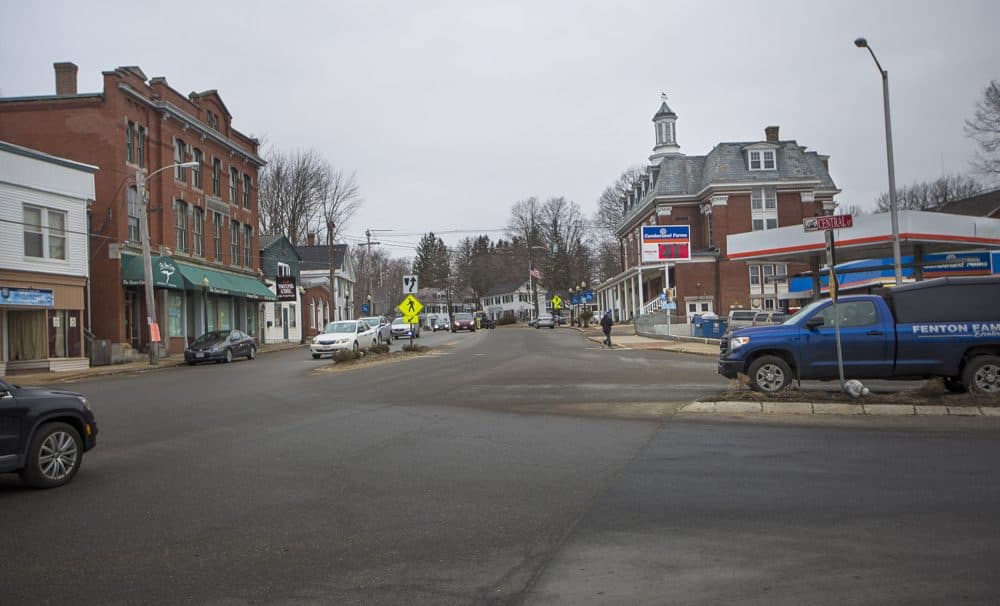
Algarin is hopeful that President Trump’s promise to bring jobs back to America can help turn things around in towns like Winchendon.
"I truly do believe he will," Algarin said. "Everybody who has gone into office is a politician. My theory is, we haven't had a president since Reagan — and he wasn't a politician, he wasn't a lawyer. And since I've been around, he's about the best one we've ever had."
'People Wanted Change'
Again and again, you hear of similar concerns in these towns: a sense of economic decline, a yearning to go back to the way things were, and a willingness to take a chance on a political outsider.
Winchendon is one of more than a dozen central Massachusetts towns that voted twice for Barack Obama, and then swung Republican to support Trump.
“They went with a non-political person," said Beth Hunt, who just opened Not Just Produced, a brand new store in Winchendon that sells produce, grass-fed meats and antiques.
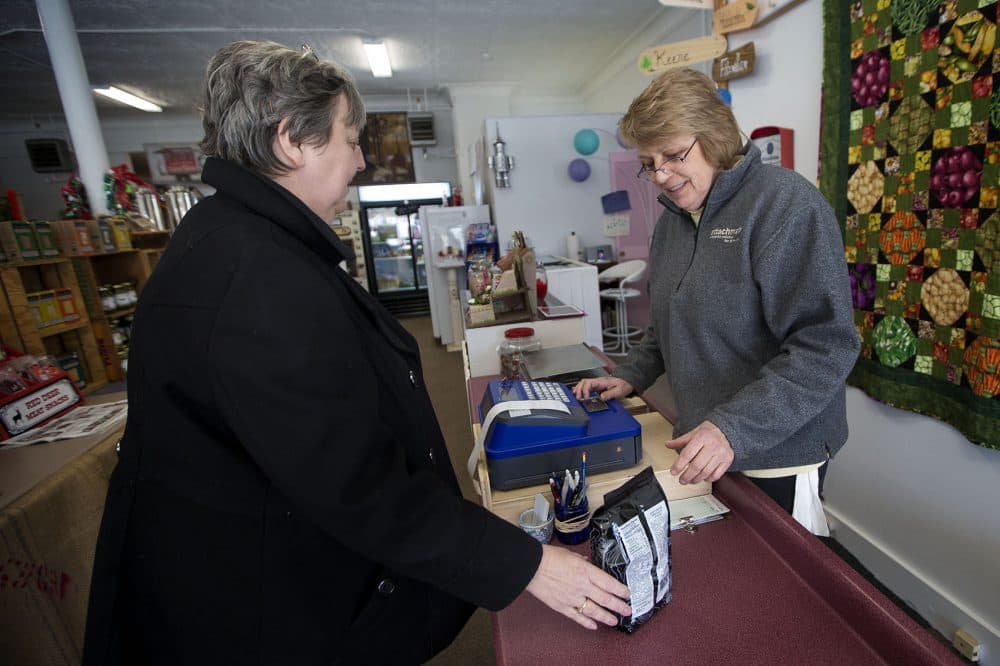
Hunt says the election divided this town, so she won't say who she voted for because she doesn't want to alienate any potential customers. But she's not surprised that most people in town voted for Trump.
"Everybody was tired of the politics, tired of the handouts," Hunt said. "They were tired of the good old-guys club. They were tired! People wanted change."
A lot of people in town agree with that, including Joe Ladeau, owner of Winchendon Furniture, which has been around since 1939. It is one of the few businesses left in town that recalls the days when abundant water power fueled a woodworking industry that made everything from shingles and clothespins to toys and furniture.
"We've been a high-end store for decades, and we sold furniture that would be expected to be passed down from generation to generation," Ladeau said. "Now the younger people don't appreciate that; their values are completely different from their parents and their grandparents. They want to buy an inexpensive piece and just replace it when it needs replacing."
Ask Ladeau how his business is going these days and he chuckles and says, "I'm glad I'm old," expressing a sadness that a way of life is disappearing from towns like Winchendon.
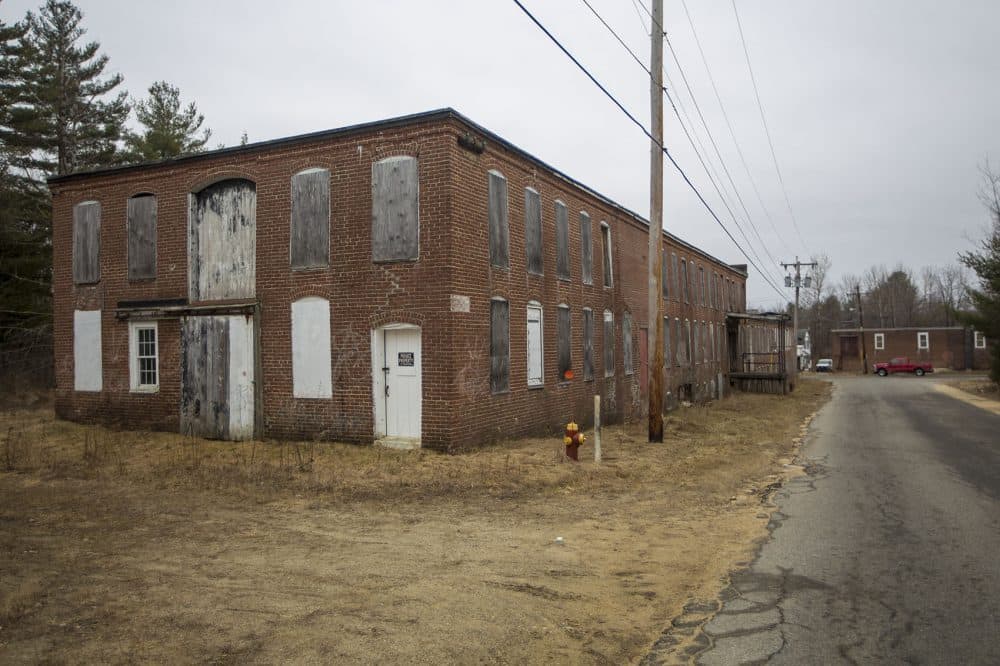
Ladeau supported the Libertarian Gary Johnson because he said he's sick of the corruption in Washington. He said it may be difficult for many around Boston to understand why so many of his neighbors voted for Trump — but he does.
"I think they just wanted a change," Ladeau said. "I think [Interstate] 495 is where Massachusetts really ends, and we're a different part of the state. We're not the 'Cambridges' and we don't have the politics that they have in the metropolitan area."
The Politics Of Disaffection
Anne Gobi understands the politics of this area as well as anyone. As the local state senator, she represents 28 towns in central Massachusetts that stretch from New Hampshire to Connecticut.
Gobi is a Democrat, and is well aware that 25 of her towns voted for Trump. So you could forgive her if she’s feeling politically vulnerable these days, but Gobi said she wasn’t surprised that Trump did as well as he did in the towns she represents.
“In fact, I was surprised that he didn't win all 28," she said.
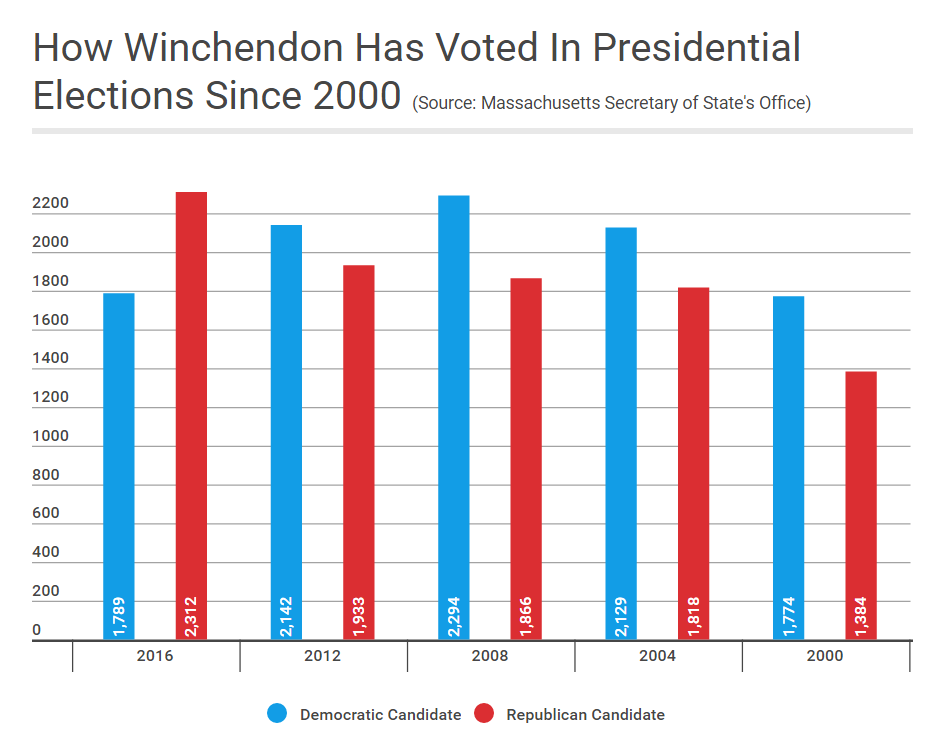
Gobi says Trump was able to connect with voters in that part of the state — much as he did in parts of the industrial Midwest — with a promise to revive its lost economic vibrancy. It is a message that resonates in towns like Winchendon, which has lost its manufacturing base. The town also faces a challenge from neighboring tax-free New Hampshire, which draws shoppers away from its own downtown. And Winchendon is one of many towns in the middle of the state without a rail link to the east.
Gobi said all this makes her part of the state feel overlooked by Blue State Democrats. So she says Trump stepped in.
"I think the Democratic Party, the state party specifically, has to not forget the people who live in my district," Gobi said. "When you go into a room, you can't expect everyone in that room to be a college graduate. And they don't need to be. And I think it's extremely important to get back to what the Democratic Party represents, which was the working person."
Gobi says whether or not Trump can deliver on his many promises to working class Americans is another question altogether. As a Democrat, she has her doubts. But she says Trump’s message still speaks to her constituents in ways that Democrats in Washington and Boston do not.
Tomorrow, in Part 2 of our occasional series: a visit to Ware
This segment aired on March 9, 2017.
